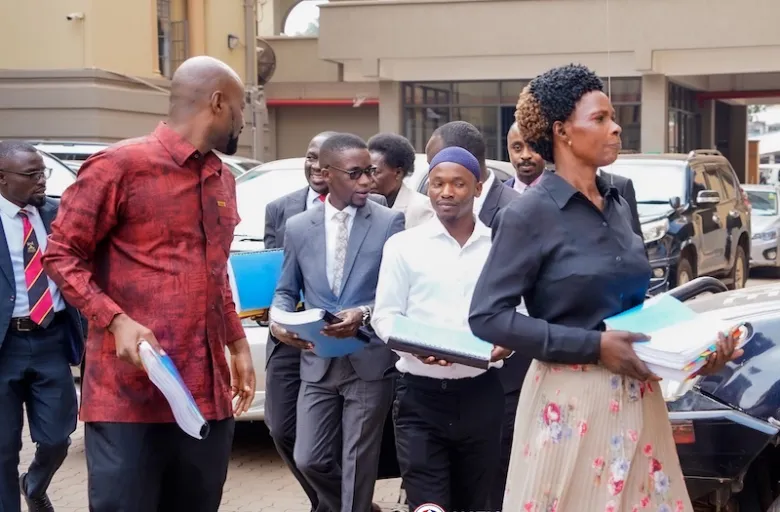TOP STORY | NUP Takes Government to Court Over Controversial UPDF Amendment Law
Kampala, Uganda – August 14, 2025
The National Unity Platform (NUP), Uganda’s main opposition party, has filed a landmark petition at the Constitutional Court challenging the recently passed Uganda People’s Defence Forces (UPDF) (Amendment) Act, 2025.
The party alleges that the new law violates Uganda’s Constitution and undermines a binding Supreme Court ruling. The petition names Attorney General Kiryowa Kiwanuka, Speaker of Parliament Anita Among, and Defence Minister Jacob Oboth Oboth as respondents—accusing them of both personal and official involvement in what NUP describes as an unconstitutional legislative process.
At the heart of the legal challenge is Section 117A of the amended Act, which reintroduces provisions allowing civilians to be tried in military courts—a move NUP argues is not only unconstitutional but also defies a January 30, 2025 Supreme Court ruling in Attorney General vs Hon. Michael Kabaziguruka, which struck down the blanket prosecution of civilians by military tribunals.
“This law is a deliberate reversal of judicial authority and a dangerous precedent that erodes the line between civilian and military justice,” the petition reads in part.
NUP also raises alarms over the broad powers now granted to military courts under the new law, claiming that the legislation:
- Undermines judicial independence by allowing UPDF High Command to appoint military judges and prosecutors.
- Permits serving military officers to sit on court panels—raising serious concerns about impartiality.
- Bypasses independent bodies like the Judicial Service Commission (JSC) and the Director of Public Prosecutions (DPP), who by law are tasked with judicial and prosecutorial appointments.
The party further criticizes the legislative process, calling it “rushed and undemocratic.” According to the petition, the UPDF Bill was introduced on May 13, passed by Parliament on May 20, and signed into law by President Yoweri Museveni shortly after—despite a walkout by opposition MPs led by Leader of the Opposition Joel Ssenyonyi.
Ssenyonyi and other opposition leaders warned that the law would dangerously tip Uganda toward military rule, effectively turning the judiciary into an extension of military authority.
“Parliament ignored not only the Constitution but also a clear Supreme Court ruling. This is legislative sabotage,” said NUP Secretary General David Lewis Rubongoya, one of the petitioners.
The party is now seeking:
- A permanent court injunction barring Parliament and the Executive from enacting similar laws in future.
- A declaration that parts of the UPDF Amendment Act, 2025 are unconstitutional.
- Legal costs to be awarded against the state.
The petition is supported by sworn affidavits from Rubongoya, Ssenyonyi, and MP Jonathan Odur, who argue that the government acted in bad faith and violated the separation of powers.
NUP is being represented by a coalition of top law firms: Nyanzi, Kiboneka and Mbabazi Advocates, Pace Advocates, and Nalukoola Advocates and Solicitors.
The Constitutional Court has yet to schedule a hearing date for the case, but legal observers say it could have far-reaching implications for the balance of power between Uganda’s military and civilian institutions.
